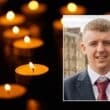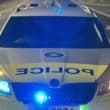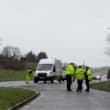Education Minister, John O’Dowd, yesterday launched guidelines for schools on the use of defibrillators.
Speaking during an event in the Long Gallery, Stormont the Minister said: “I am delighted to be here today to launch the Defibrillator Guidelines for Schools. Thankfully, the incidence of cardiac arrest in under-18s is very low however we know that in such circumstances the most effective treatment is CPR combined with the use of a defibrillator. This significantly improves survival rates.”
Having a defibrillator is an optional addition to first aid provision in schools and schools are increasingly seeking advice from the Boards and CCMS on the type of defibrillator they might purchase and training in its use. Consequently, the Boards and CCMS established a joint working group to consider how they might best respond to the needs of schools. The work of that group has led to the production of the guidance document.
Continuing the Minister said: “The new guidelines clearly set out the issues which schools should consider in deciding whether to purchase a defibrillator. Contracts have been awarded to enable schools to purchase defibrillators at a reduced rate and to secure essential training in the use of the defibrillator and CPR technique.”
During the event, the Minister met with Eoghan McConville and Eoin Millar both from St Colman’s Primary School, Lambeg.
Eoghan was diagnosed with a heart condition and underwent heart surgery at the age of four. Despite this, he is now actively playing and enjoying taking part in sport.
The Minister said: “Sometimes young people have a heart problem which the doctors know is there. In such cases the child’s school will be informed about this and the school will often seek to ensure that a defibrillator is available as a precautionary measure. However, there are times when the heart can cause problems that nobody can foresee.
“We have read stories in the newspapers and seen reports on the television about emergency situations where a young person has experienced a sudden cardiac arrest and where the use of a defibrillator, combined with CPR, has been of vital importance in ensuring resuscitation is effective. Whilst this type of emergency is very rare, when it does occur it is vital that immediate, and the right course of action is taken.”
Eoin played an essential role in helping to save the life of his grandmother when she collapsed suddenly after suffering a heart attack. His mother did CPR whilst Eoin talked her through it, relaying the information given by the ambulance service.
The Minister said: “For boys this age to display so much courage is truly inspiring and such stories bring into sharp focus how essential it is to be prepared for such incidents. St Colman’s is just one example of a local school which has ensured that it has a defibrillator on site so that it can respond to the needs of its pupils.”
Brendan O’ Reilly, BELB and SEELB Health, Safety and Security Manager added: “Schools over the past number of years have increasingly sought advice from the Boards on both where they can purchase a defibrillator and, importantly, what type of unit would best meet their needs. Supported by health professionals, the Boards have now out in place guidance that answers those questions and gives schools access to quality training.”
In conclusion the Minister congratulated the Inter Board Automated External Defibrillator (AED) Working Group for carrying out the work which will support all schools in seeking to ensure the health and safety of their young people.





